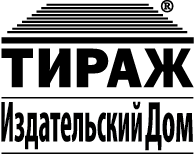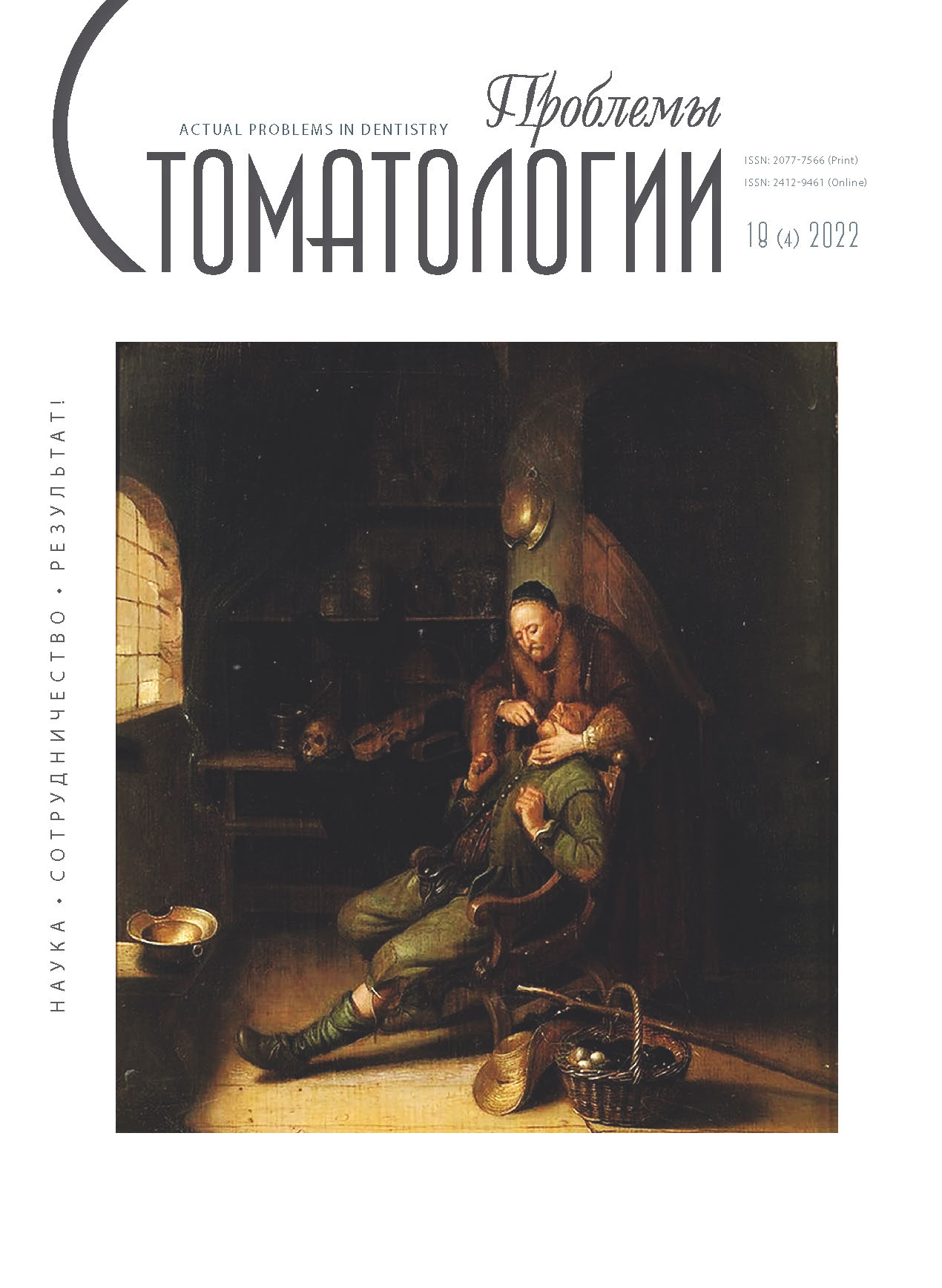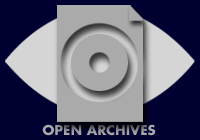Moscow, Moscow, Russian Federation
Moscow, Moscow, Russian Federation
Moscow, Moscow, Russian Federation
Subject. The tendency of growing antibiotic resistance causes scientific medical community to develop new antimicrobial treatment protocols. Recently, the increased interest in photodynamic therapy has been noted. Photodynamic therapy (PDT) is a non-surgical method of treatment patients with inflammatory diseases and neoplasms in the maxillofacial region, based on the interaction between special light-sensitive chemical compounds — photosensitizers and light radiation. The literature reports the existence of synthetic and natural photosensitizers. Despite the higher stability present by the synthetic photosensitizers, they are more prone to collateral effects. Recently, a growing body of evidence shows the promising applications of curcumin against different diseases, including the pathologies in maxillofacial region. Curcumin is a bioactive compound isolated from the roots of Curcuma longa that has antibacterial, antiviral, anti-inflammatory, and antioxidant properties. The disadvantage of curcumin is that it is unstable at physiological pH, has low water solubility and is rapidly metabolized by the body. The objective of this work is to review current research aimed at improving curcumin as a photosensitizer used for photodynamic therapy. Methodology. The analysis of scientific articles from databases of medical and biological publications — scientific electronic library (Elibrary), PubMed and Web of Science, dedicated to the use of curcumin in photodynamic therapy. Results and conclusion. The results of modern research in the field of laser technologies presented in this review indicate that photodynamic therapy with curcumin, as a photosensitizer is a promising treatment option in many fields of medicine. The aforementioned scientific studies give the understanding that the study and improvement of delivery systems for curcumin photosensitizer by combining it with nanoparticles is a scientific interest.
photodynamic therapy, photosensitizer, curcumin, nanoparticles, laser technology
1. Moan J., Peng Q. An outline of the hundred-year history of PDT // Anticancer Res. - 2003;23:3591-3600. PMID: 14666654
2. Agostinis P., Berg K., Cengel, K.A., Foster, T.H., Girotti, A.W., Gollnick, S.O., Hahn,S.M., Hamblin, M.R., Juzeniene, A., Kessel, D. et al. Photodynamic therapy of cancer: an update // CA: Cancer J. Clin. - 2011;61:250-281. doi:https://doi.org/10.3322/caac.20114.
3. Hopper C. Photodynamic therapy: a clinical reality in the treatment of cancer // The lancet oncology. - 2000;1(4):212-219. DOI:https://doi.org/10.1016/s1470-2045(00)00166-2
4. Dysart J.S., Patterson M.S. Characterization of Photofrin photobleaching for singlet oxygen dose estimation during photodynamic therapy of MLL cells in vitro // Phys Med. Biol. - 2005;50:2597-2616. DOI:https://doi.org/10.1088/0031-9155/50/11/011
5. Foote C.S. Mechanisms of photosensitized oxidation. There are several different types of photosensitized oxidation which may be important in biological systems // Science. - 1968;1;62:963-970. DOI:https://doi.org/10.1126/science.162.3857.963
6. Moan J., Berg K., Kvam E., Western A., Malik Z., Ruck A., Schneckenburger H. Intracellular localization of photosensitizers // Ciba Found. Symp. - 1989;146:95-107. DOI:https://doi.org/10.1002/9780470513842.ch7
7. Potapovich A.I., Yassen A.T., Kostyuk V.A. Prirodnyy himioprofilakticheskiy agent kurkumin mozhet funkcionirovat' kak effektivnyy UF-fotosensibilizator. Fiziko-himicheskaya biologiya kak osnova sovremennoy mediciny : tezisy dokladov uchastnikov Mezhdunarodnoy nauchnoy konferencii, posvyaschennoy 75-letiyu so dnya rozhdeniya professora E. V. Barkovskogo, Minsk, 21 maya 2021 goda. Minsk : Belorusskiy gosudarstvennyy medicinskiy universitet. 2021:230-232. [A.I. Potapovich, A.T. Yassen, V.A. Kostyuk. The natural chemopreventive agent curcumin can function as an effective UV photosensitizer. Physical and chemical biology as the basis of modern medicine: abstracts of the participants of the International Scientific Conference dedicated to the 75th anniversary of the birth of Professor E. V. Barkovsky, Minsk, May 21, 2021. Minsk: Belarusian State Medical University. 2021:230-232. (In Russ.)]. https://www.bsmu.by/downloads/news/2021/tezisi2021.pdf
8. Utc S.R., Tal'nikova E.E., Sultanahmedov E.S. i dr. Psoriaz nogtey: pervyy opyt fotodinamicheskoy terapii s kurkuminom. Saratovskiy nauchno-medicinskiy zhurnal. 2017;13(3):600-604. [S.R. Utz, E.E. Talnikova, E.S. Sultanakhmedov. Nail psoriasis: first experience with photodynamic therapy with curcumin. Saratov Scientific Medical Journal. 2017;13(3):600-604. (In Russ.)]. https://www.elibrary.ru/item.asp?id=32484250
9. Araújo N.C., Fontana C.R., Bagnato V.S., Gerbi M.E.M. Photodynamic effects of curcumin against cariogenic pathogens // Photomed. Laser Surg. - 2012;30(7):393-399. DOIhttps://doi.org/10.1089/pho.2011.3195
10. Paschoal M.A., Lin M., Santos-Pinto L., Duarte S. Photodynamic antimicrobial chemotherapy on Streptococcus mutans using curcumin and toluidine blue activated by a novel LED device // Lasers Med. Sci. - 2013;30(2):885-890. DOI:https://doi.org/10.1007/s10103-013-1492-1
11. Paschoal M.A., Tonon C.C., Spolidório D.M.P., Bagnato V.S., Giusti J.S.M., Santos-Pinto L. Photodynamic potential of curcumin and blue LED against Streptococcus mutans in a planktonic culture // Photodiagn Photodyn. Ther. - 2013;10(3):313-319. DOI:https://doi.org/10.1016/j.pdpdt.2013.02.002
12. Manoil A., Gameiro F.C., Lange N., Schrenzel J., Wataha J.C. et al. Flow cytometric assessment of Streptococcus mutans viability after exposure to blue light activated curcumin // Photodiagn. Photodyn. Ther. - 2014;11(3):372-379. DOI:https://doi.org/10.1016/j.pdpdt.2014.06.003
13. Dovigo L.N., Pavarina A.C., Ribeiro A.P.D., Brunetti I., Costa C.A.S., Jacomassi D.P. et al. Investigation of the photodynamic effects of Curcumin against Candida albicans // Photochem. Photobiol. - 2011;87(4):895-890. DOI:https://doi.org/10.1111/j.1751-1097.2011.00937.x
14. Dovigo L.N., Pavarina A.C., Carmello J.C., Machado A.L., Brunetti I., Bagnato V.S. Susceptibility of clinical isolates of Candida to photodynamic effects of Curcumin // Lasers Surg. Med. - 2011;43(9):927-934. DOI:https://doi.org/10.1002/lsm.21110
15. Dovigo L.N., Carmello J.C., Costa C.A.S., Vergani C.E., Brunetti I.L., Bagnato V.S. et al. Curcumin-mediated photodynamic inactivation of Candida albicans in a murine model of oral candidiasis // Med. Mycol. - 2013;51(3):243-251. DOIhttps://doi.org/10.3109/13693786.2012.714081
16. Okada N., Muraoka E., Fujisawa S., Machino M. Effects of curcumin and capsaicin irradiated with visible light on murine oral mucosa // In Vivo. - 2012;26(5):759-764. https://pubmed.ncbi.nlm.nih.gov/22949588/
17. Araújo N.C., Fontana C.R., Gerbi M.E.M., Bagnato V.S. Overall-mouth disinfection by photodynamic therapy using curcumin // Photomed. Laser Surg. - 2012;30(2):96-101. DOI:https://doi.org/10.1089/pho.2011.3053
18. Paschoal M.A., Moura C.M.Z., Jeremias F., Souza J.F., Bagnato V.S., Giusti J.S.M. et al. Longitudinal effect of curcumin-photodynamic antimicrobial chemotherapy in adolescents during fixed orthodontic treatment: a single-blind randomized clinical trial study // Lasers Med. Sci. - 2014;30(8):2059-2065. DOI:https://doi.org/10.1007/s10103-014-1700-7
19. Leite D.P.V., Paolillo F.R., Parmesano T.N., Fontana C.R., Bagnato V.S. Effects of photodynamic therapy with blue light and curcumin as mouth rinse for oral disinfection: a randomized controlled trial // Photomed. Laser Surg. - 2014;32(11):627-632. DOI:https://doi.org/10.1089/pho.2014.3805
20. Weber M., Weber R., Junggebauer M. Photodynamic low-level-laser therapy. Chapter 6 // Medical Low-Level Laser Therapy-Foundations and Clinical Applications-Research Book. 2nd ed. ISLA-International Society for Medical Laser Applications : Beverungen. Germany. - 2015:431-465. https://weberlaser.com/product/book/
21. Mirzaei H., Shakeri A., Rashidi B., Jalili A., Banikazemi Z., Sahebkar A. Phytosomal curcumin: A Review of pharmacokinetic, experimental and clinical studies // Biomed. Pharmacother. - 2017;85:102-112. DOI:https://doi.org/10.1016/j.biopha.2016.11.098
22. Ambreen G., Duse L., Tariq I., Ali U., Ali S., Pinnapireddy S.R., Bette M., Bakowsky U., Mandic R. Sensitivity of Papilloma Virus-Associated Cell Lines to Photodynamic Therapy with Curcumin-Loaded Liposomes // Cancers. - 2020;12:3278. DOI:https://doi.org/10.3390/cancers12113278
23. Liu L., Sun L., Wu Q., Guo W., Li L., Chen Y., Li Y., Gong C., Qian Z., Wei Y. Curcumin loaded polymeric micelles inhibit breast tumor growth and spontaneous pulmonary metastasis // Int. J. Pharm. - 2013;443:175-182. DOI:https://doi.org/10.1016/j.ijpharm.2012.12.032
24. Jin H., Pi J., Zhao Y., Jiang J., Li T., Zeng X., Yang P., Evans C.E., Cai J. EGFR-targeting PLGA-PEG nanoparticles as a curcumin delivery system for breast cancer therapy // Nanoscale. - 2017;9:16365-16374. DOI:https://doi.org/10.1039/c7nr06898k
25. Staggers N., McCasky T., Brazelton N., Kennedy R. Nanotechnology: the coming revolution and its implications for consumers, clinicians, and informatics // Nurs. Outlook. - 2008;56:268-274. DOI:https://doi.org/10.1016/j.outlook.2008.06.004
26. Master A., Livingston M., Sen Gupta A. Photodynamic nanomedicine in thetreatment of solid tumors: perspectives and challenges // J. Control. Release. - 2013;168:88-102. DOI:https://doi.org/10.1016/j.jconrel.2013.02.020
27. Perni S., Prokopovich P., Pratten J., Parkin I.P., Wilson M. Nanoparticles: their potential use in antibacterial photodynamic therapy // Photochem. Photobiol. Sci. - 2011;10:712-720. DOI:https://doi.org/10.1039/c0pp00360c
28. Sadasivam M., Avci P., Gupta G.K., Lakshmanan S., Chandran R., Huang Y.Y., Kumar R., Hamblin M.R. Self-assembled liposomal nanoparticles in photodynamic therapy // Eur. J. Nanomed. - 2013;5:115-129. DOI:https://doi.org/10.1515/ejnm-2013-0010
29. Avci P., Erdem S.S., Hamblin M.R. Photodynamic therapy: one step ahead with self-assembled nanoparticles // J. Biomed. Nanotechnol. - 2014;10:1937-1952. DOI:https://doi.org/10.1166/jbn.2014.1953
30. Rudramurthy G., Swamy M., Sinniah U., Ghasemzadeh A. Nanoparticles: Alternatives against drug-resistant pathogenic microbes // Molecules. - 2016;21:836. DOI:https://doi.org/10.3390/molecules21070836
31. Moballegh Nasery M., Abadi B., Poormoghadam D., Zarrabi A., Keyhanvar P., Khanbabaei H., Ashrafizadeh M., Mohammadinejad R., Tavakol S., Sethi G. Curcumin Delivery Mediated by Bio-Based Nanoparticles: A Review // Molecules. - 2020;25:689. DOI:https://doi.org/10.3390/molecules25030689
32. Sun J., Bi C., Chan H.M., Sun S., Zhang Q., Zheng Y. Curcumin-loaded solid lipid nanoparticles have prolonged in vitro antitumour activity, cellular uptake, and improved in vivo bioavailability // Colloids Surf. B Biointerfaces. - 2013;111:367-375. DOI:https://doi.org/10.1016/j.colsurfb.2013.06.032
33. He H., Chen S., Zhou J., Dou Y., Song L., Che L., Zhou X., Chen X., Jia Y., Zhang J. et al. Cyclodextrin-derived pH-responsive nanoparticles for delivery of paclitaxel // Biomaterials. - 2013;34:5344-5358. DOI:https://doi.org/10.1016/j.biomaterials.2013.03.068
34. Reeves A., Vinogradov S.V., Morrissey P., Chernin M., Ahmed M.M. Curcumin-encapsulating Nanogels as an Effective Anticancer Formulation for Intracellular Uptake // Mol. Cell Pharmacol. - 2015;7:25-40. DOI:https://doi.org/10.4255/mcpharmacol.15.04



















